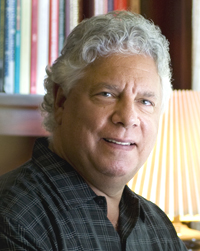Model shows those using heroin-assisted therapy live longer and cost society less
Medically prescribed heroin is more cost-effective than methadone for treating long-term street heroin users, according to a new study by researchers at the University of British Columbia and Providence Health Care.
The study, published March 12, 2012 in the Canadian Medical Association Journal (CMAJ), attributed most of the economic benefits to the fact that recipients of medically prescribed heroin (diacetylmorphine) stayed in treatment longer and spent less time in relapse than those receiving methadone. Both results are associated with reduced criminal activity and lower health care costs.
Additionally, an individual in the diacetylmorphine group was more likely to live longer than someone receiving methadone maintenance therapy.
The findings were drawn from the North American Opiate Medication Initiative (NAOMI), a trial of medically prescribed heroin that took place in Vancouver from 2005 to 2008, as well as administrative drug data from British Columbia. NAOMI was North America’s first-ever clinical trial of prescribed heroin.
The researchers – led by Dr. Aslam Anis, and Professor in UBC’s School of Population and Public Health and Director of the Centre for Health Evaluation and Outcome Sciences (CHÉOS) at Providence Health Care – used a cost-effectiveness analysis to compare treatments over a one-, five- and 10-year period, as well as a lifetime horizon.
Those in the methadone therapy group generated an average lifetime societal cost of $1.14 million per person, while those in the diacetylmorphine group generated a lesser cost of $1.09 million. The study considered treatment expenditures, estimated costs for drug therapies and costs borne by the justice system.
“NAOMI demonstrated that heroin-assisted therapy is a more effective treatment option than MMT, but now, thanks to this study, we can also confidently say that there are significant economic benefits of using this medication,” Dr. Anis says.
“The question I get most about heroin-assisted therapy is whether we can afford the increased direct costs of the treatment,” says co-author Dr. Martin Schechter, Professor at UBC’s School of Population and Public Health and a CHÉOS scientist. “What this study shows is that the more appropriate question is whether we can afford not to.”
The NAOMI study, which was also led by researchers from PHC, CHÉOS and UBC, was a randomized trial aimed at testing whether medically prescribed heroin was more effective than methadone therapy for individuals who were not currently benefiting from conventional treatment.
The results, published in the New England Journal of Medicine, showed that patients treated with the prescribed heroin were more likely to stay in treatment or quit heroin altogether and more likely to reduce their use of illegal drugs and other illegal activities than patients treated with oral methadone.
The study is a collaboration with CHÉOS, UBC, Université de Montréal and the Northern Ontario School of Medicine.

